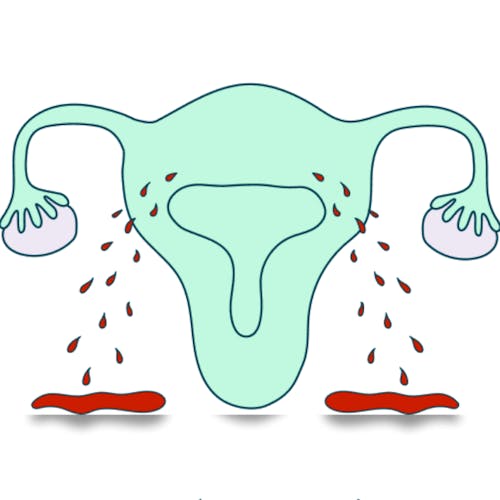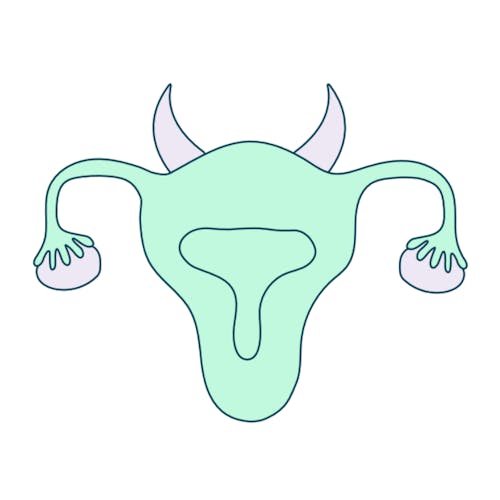This website uses cookies to enhance the user experience. By using Yoppie you are agreeing to our use of cookies.
Follicular Phase 101: What symptoms to expect, and how to manage them
Written by Yoppie
07 Jun 2022
What is the follicular phase?
How long does it last?
What is happening to my body?
What symptoms am I likely to experience?
How can I optimise this time of the month?
What if my follicular phase is longer than it should be?
What if my follicular phase is shorter than it should be?
Gimme an F! Gimme an O! Gimme a… oh you know the rest. We’ve reached the follicular phase in our series on the phases of your menstrual cycle, and this is a great one. For many, it’s their favourite time of the month. Let’s get into what's happening in there, the symptoms you might experience, and how to make the most of this magical time. Here we go…
What is the follicular phase?
Let’s start with a quick recap of the menstrual cycle phases. In the ovulation phase, an egg is released, and during the luteal phase, the uterine lining thickens to support the egg’s growth. If a pregnancy doesn’t occur, the lining of the uterus sheds and this is the menstrual phase, also known as your period.
When it’s time to start the cycle over again, the follicular phase comes in, which is when the little pods containing eggs (AKA follicles) get busy prepping an egg to send down the fallopian tubes when the time is right.
How long does it last?
The menstrual cycle is different for everyone, but on average the follicular phase can last anywhere between 11 and 27 days. The average is around 16 days.
What is happening to my body?
The follicular phase basically makes up the first half of your cycle, and it starts when the hypothalamus (kind of like the hormone command centre) sends a signal to the pituitary gland in your brain telling it to release something called FSH (follicle-stimulating hormone). When this happens, it triggers the ovaries to make around 5 to 20 ‘follicles’, and each of these holds an egg (not yet fertilised).
The follicles grow bigger until eventually most of them start to wither away and are reabsorbed by the body, while the remaining dominant follicle increases the body’s oestrogen production. These higher levels of oestrogen cause the uterine lining to thicken. At the same time, another hormone called luteinising hormone (LH) begins to increase, which in turn stops oestrogen production and starts the ovulation process.
What symptoms am I likely to experience?
So you’re in the follicular phase? You lucky thing! While you may still experience some PMS symptoms in this phase too, the more likely symptoms of the follicular phase tend to include increased energy levels, more focus, and a slight increase in body temperature.
This may simply be in contrast to the more negative PMS symptoms we tend to experience in other phases of the cycle, but there’s no denying that for some this is the happiest time in their month. You may feel more energetic, more upbeat, more social, and less anxious. In short, many people describe it as feeling like themselves again.
How can I optimise this time of the month?
Unlike other phases, the positive side effects of this phase are probably the ones you want to prolong and increase as much as possible. To optimise this time of the month, focus on eating a healthy, whole-food diet with lots of healthy fats, protein, and leafy green vegetables to boost those nutrients. When it comes to exercise, this time of the month is when your luteinising hormone and testosterone peak, so you may be more inclined to do high-intensity interval training and up your weights.
What if my follicular phase is longer than it should be?
For most people, the follicular phase is the longest part of their cycle, but is it possible for it to be too long? If we’re going by the positive benefits to our mood, you’re probably thinking ‘Heck no! Keep those positive vibes coming!’
The truth is, some people do have a long follicular phase if it takes longer for a dominant follicle to mature, and therefore the ovulation phase can be longer too. This is nothing to worry about, but some causes include using birth control pills for an extended period of time, and low levels of vitamin D. If you’re trying to get pregnant, don’t worry - you’re just as likely to conceive as those with a ‘normal’ length follicular phase.
What if my follicular phase is shorter than it should be?
On the flip side, a shorter follicular phase can affect your chances of getting pregnant and could be a super early sign of menopause. Even if you still get your period as normal, if you track your cycle you may notice your follicular phase shortening from your late 30s onwards.
A short follicular phase can mean your FSH levels will rise as normal, but your LH stays low, causing the follicle to mature too quickly for the egg. This can affect fertility, but not always, so it’s best to speak to your doctor to find out more about your own cycle.
Curious to know what phase of your cycle you’re in right this minute? On our website, you’ll find a short Learn Your Phase questionnaire which helps you discover more about your cycle. We love to help people tackle the symptoms associated with the entire cycle - not just the bleed days - so whatever your symptoms or cycle goals are, we’ve got you.
And if you have a question about the follicular phase, we’re all ears! Ask away over in our Full Stop FB group, or get in touch on IG at @itsyoppie so our team can help.
Don't forget that our personalised menstrual cycle subscription box can get organic tampons, PMS supplements and much more delivered easily and regularly through your letterbox, to give you just a bit more peace of mind each cycle.
Section jump
Back to top
Subscribe To Our Newsletter
YOPPIE





© 2026 Yoppie is a registered trademark of Phlo Technologies Ltd.
Yoppie's supplements are not a substitute for a varied diet and healthy lifestyle and are not intended to diagnose, treat, or cure any disease. If you are pregnant, breastfeeding, have a medical condition or are under medical supervision, please consult with your doctor before taking any of our products.






